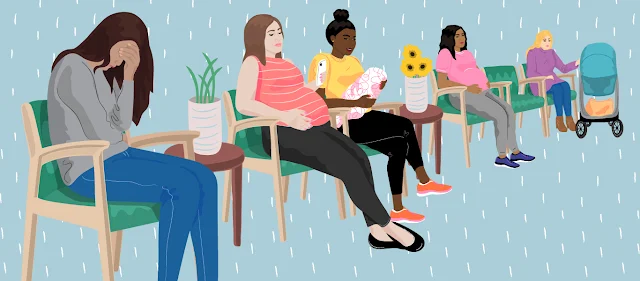Child mortality is a big deal, and a lot of people are fighting to
reduce it in the developing world. In fact, the number of children
younger than 5 who die each year from preventable causes has decreased
dramatically — from 12.7 million in 1990 to 5.9 million in 2015. But
that’s not fast enough, per the World Health Organization and other
development agencies.
They insist governments can and should do more to further reduce the
under-5 mortality rate — a key measure of a nation’s care for its most
vulnerable citizens, young children, and infants.
Preventing early childhood death is one of the main objectives
of the global-health community. But while huge investments in
health-care infrastructure will no doubt be needed to achieve this goal,
the highest returns will most likely come from encouraging maternal
immunization and breastfeeding.
One of the more ambitious targets of the United Nations Sustainable Development Goals (SDGs) is the commitment to end preventable deaths of newborns and children
over the next decade. If this target is met, by 2030 no country will
have a neonatal mortality rate above 12 deaths per 1,000 births – a quarter of the current rate in parts of Sub-Saharan Africa.
Given the magnitude of the challenge, huge investments will be
needed in health-care infrastructure and planning. Perhaps the most
effective way to reduce infant mortality would be to encourage uptake of
two readily available resources: maternal vaccinations and breast milk.
Protecting children from early deaths begins before they are born. When a
woman is vaccinated against common illnesses like influenza, her body
creates antibodies that recognize viruses and boost natural defenses
against pathogens. When she becomes pregnant, these protective proteins
are transferred to her baby across the placenta.
Undernutrition is
estimated to be an underlying cause in more than one-third of all deaths
in children under five. Programmes to improve household food security
and nutrition information increase children’s chances of growing to
adulthood.
FAO programmes assist poor households and
communities to secure access to nutritionally adequate diets and reduce
child undernutrition. Activities include: community-centred initiatives,
training materials, nutrition education programmes, training programmes
for national and local staff, and promotion of a forum on household
food security and community nutrition.
Improved complementary feeding for young children,
i.e. giving foods in addition to breastmilk, is an important way to
prevent undernutrition and reduce child mortality. FAO helps countries
strengthen local capacities to improve complementary feeding for young
children, using locally available and affordable foods.
Through linking household food security with
nutrition education, improved complementary feeding using family foods
is feasible even in resource poor environments. Programmes have been
successfully implemented in Afghanistan and Zambia and FAO is now
applying this approach in more countries. FAO is also part of the
Renewed Efforts against Child Hunger and Undernutrition (REACH) in
partnership with UNICEF, WHO and WFP.
It is in line with the UN SDG No 4 that Cominsud is bent at seeing that women deliver safely since safe delivery builds a happy home.
It should be noted that most women loose their babies simply because they didn't observe a healthy lifestyle during pregnancy.
To avoid therefore this ugly syndrome of loosing babies before and during birth, pregnant women must to learn to:
-Begin clinic at 3 months and be regular.
-Do all test and follow all medical advice.
-Avoid stressful activities.
-Must avoid alcohol and smoking for it affects the health of the baby.
- Must do timely preparations and endeavor to stay with someone.
Around the world, women have varied access to healthcare services, and
hospitals and clinics in many countries are very often under-resourced
and understaffed. As varied as the experience of losing a baby may be,
around the world, stigma, shame and guilt emerge as common themes. As
these first-person accounts show, women who lose their babies are made
to feel that should stay silent about their grief, either because
miscarriage and stillbirth are still so common, or because they are
perceived to be unavoidable.



Comments